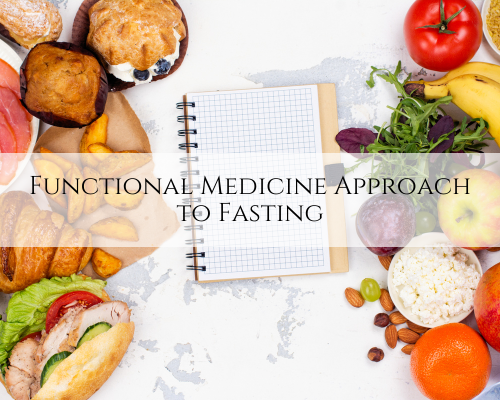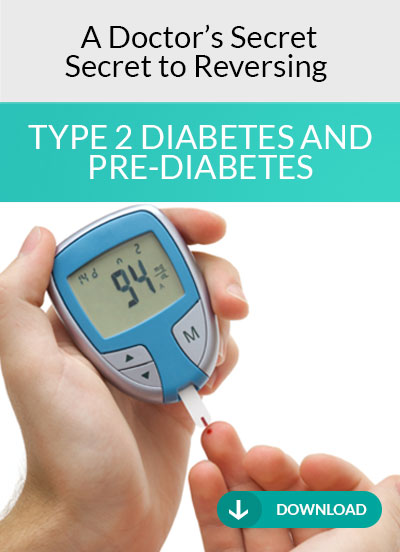You may have heard a lot about fasting in wellness communities, but fasting has been practiced for medicinal, religious, and spiritual reasons since ancient times. Fasting is common in many religions and goes back to ancient Greece. The “father of medicine,” Hippocrates, believed fasting helped the body heal itself. Buddhists, Muslims, Hindus, Christians, and Jewish people all have fasting traditions as part of their religious practices. In addition, fasting has become quite popular for supporting overall wellness. There are different types of fasting, including intermittent, prolonged, mimicked, lemonade, and elemental dieting. Fasting offers many health benefits, including enhanced insulin sensitivity and improvements for certain autoimmune disorders.
What is Fasting?
Fasting is simply refraining from eating and drinking for a specific period, usually between 24 to 48 hours. Fasting can also refer to the metabolic state that occurs after your body has digested and absorbed all the food you have eaten, usually about 8-12 hours after a meal. You may have some experience fasting before a blood test or a surgical procedure. We all experience some form of fasting overnight as we sleep, and we wake up to “break our fast,” or eat breakfast.
Fasting and Functional Medicine Approach
Functional medicine implements fasting to help with chronic illnesses, particularly reducing risk factors for metabolic syndrome and obesity and assisting those with pre-diabetes and type 2 diabetes. This is because insulin sensitivity improves after fasting periods. Insulin sensitivity is how your body’s cells react to the effects of insulin and how sensitive they are to insulin. More insulin sensitivity is better for health and blood sugar balance.
In addition, fasting can be helpful for certain autoimmune disorders by resetting the immune system. One example includes a study on the effects of people fasting for Ramadan (the thirty-day fasting period practiced by Muslims). It was found that patients with multiple sclerosis (MS) experienced less fatigue, a better quality of life, more energy, better cognitive function, and improved emotional health. It is best to work with your functional medicine health practitioner when you begin fasting, as he or she can help you customize your fasting journey to your needs and monitor its effects over time.
When Fasting Isn’t the Best First Choice
Fasting may not be the best starting point in your healing journey; you may need to get to a place of wellness before your body can handle fasting practices. It is not recommended that you fast if you have any of the following underlying issues:
- Blood sugar levels out of balance
- Certain autoimmune disorders
- Hypothalamic-pituitary-adrenal (HPA) axis dysfunction (commonly known as adrenal stress or adrenal fatigue)
- Metabolically fragile
Having one of these conditions doesn’t mean that you can’t ever fast, but until underlying issues are resolved, you shouldn’t fast until you show signs that you can safely fast. In addition to the list above, females don’t do as well as males when fasting.
Why can some people fast and others can’t? Because fasting is a type of stress on the body and for bodies that are already experiencing too much stress, the added stress of fasting can be detrimental.
Signs That You Can Fast
Fasting is beneficial stress or “good stress.” That’s why there are health benefits to fasting. Before starting a fasting practice, make sure you do not show signs of adrenal stress or HPA axis dysfunction. That means you have no sleep issues, your energy is good, and you are regularly exercising.
Signs that fasting will be beneficial to you include:
- No disease flare-ups
- You are sleeping well
- You feel well-rested in the morning when you awaken
- You recover well from exercise or physical activity
- Your blood sugar levels are balanced or improved
- Your energy is good
Benefits of Fasting
The foremost benefit for anyone who fasts is giving your gastrointestinal system a break. This means your body isn’t working so hard to digest your food. Did you know it takes the human body 6 to 8 hours to pass food through your small intestines and then 36 hours for food to move through the entire colon? Giving your body a break from all that work can be helpful for your health.
Those with inflammatory bowel disease (IBD) or irritable bowel syndrome (IBS) benefit if the gut needs a break, lessening symptoms of both disorders.
Fasting may help to:
- Balance ghrelin (“hunger hormone”) levels
- Boost fat-burning
- Cool off inflammation
- Eliminate toxins from the body
- Fight free radical damage
- Give your gut a break
- Give your immune system a break
- Improve mindfulness practices
- Improve the diversity of gut microbiota
- Increase longevity
- Lower triglyceride levels
- Manage weight and lose weight
- Optimize insulin sensitivity
- Reset immune function
- Reduce autoimmune symptoms
- Slow the aging process by increasing the rate of HGH (human growth hormone) production
- Support autophagy (the cleaning out of old cells)
Types of Fasting
Intermittent Fasting (12 hours)
Intermittent fasting is very popular and a great place to start a fasting regiment. It is recommended that you start with alternating days and watch closely for any negative symptoms.
When digesting food and absorbing it, your body is in the “fed” state. This process begins the moment you start eating and goes on until you have absorbed your food, 3 to 5 hours later. When you are in a fed state, it is difficult for your body to burn fat because insulin levels are high.
However, in the post-absorptive state, which is the 8 to 12 hours after your last meal, your insulin levels are low, enabling your body to enter a fasting state which triggers fat-burning. One type of intermittent fasting that skips days is called the 5:2 intermittent fasting plan.
In this fasting model, you fast for two days a week (eating restricted calories) and the other days of the week you eat normally. For example, you could limit the calories you eat on Mondays and Thursdays to 500-600 calories and resume eating normally the rest of the week.
Prolonged Fast
This type of fasting is prolonged or extended fasting that lasts approximately four to seven days consecutively. This fasting is meant to stimulate changes at a cellular level, and studies show that prolonged fasting can significantly alter carbohydrate and fat oxidation as well as glucose tolerance.
Mimicked Fast
Reserved for metabolically fragile patients, mimicked fasting utilizes a 5 Day PROLON Protocol and mimics fasting because only low-calorie foods are consumed. This meal program focuses on well-researched quantities and combinations of micro-nutrients and macro-nutrients that will nourish you but it mimics fasting because your body will not quite know the difference. So, you can fast without the risks involved for those who may not do well with other fasting methods. Some of the benefits of mimicked fasting mirror those with alternate fasting methods, including supporting cellular renewal and metabolic health, improving cognitive clarity, and weight loss, particularly body fat.
Lemonade Fast
This fast lasts for three days, and no food is eaten during. The lemonade fast is a liquid-only fast during which you drink a mixture of lemon juice, water, and maple syrup. This combination helps to detox your body, especially your liver, but also balances your blood sugar levels during your fast. There is still ongoing research on the lemonade fast, and it is best to speak with your doctor before embarking on any fasting regimen.
The lemonade fast is not recommended for those with health challenges.
Elemental Diet
An elemental diet is a medical food powder that provides nutrients and calories that don’t require digestion. This gives your gut a break. Gastroenterologists often use this diet to help with Crohn’s disease, chronic pancreatitis, celiac disease, arthritis, IBS, food allergies, food intolerances, or colitis. The elemental diet provides broken-down fats, proteins, and carbohydrates with amino acids, vitamins, minerals, and electrolytes.
The elemental diet calms the digestive system, reduces inflammation, and prevents autoimmune reactions. In addition, this diet is helpful for SIBO, small intestine bacterial overgrowth, by starving overgrown gut bacteria and normalizing lactulose hydrogen breath tests.
Is Fasting Right for You?
Fasting may not be a great first step for those who are metabolically fragile or who have adrenal stress, but it is a beneficial stress for those in general good health. Fasting has a long history of use. Fasting benefits immune function, gut function, blood sugar balance, and even the cleaning out of old cells (autophagy). Fasting can improve symptoms of autoimmune disorders such as multiple sclerosis, ulcerative colitis, or Crohn’s disease. If you are wondering if fasting can improve your autoimmune condition, get in touch with us today for an in-person or a complimentary virtual appointment. We will review your unique health history and help you decide which type of fasting is best for you on your healing journey.
Board Certified in Integrative Medicine
Certified Functional Medicine Practitioner
Institute for Functional Medicine Certified Practitioner






